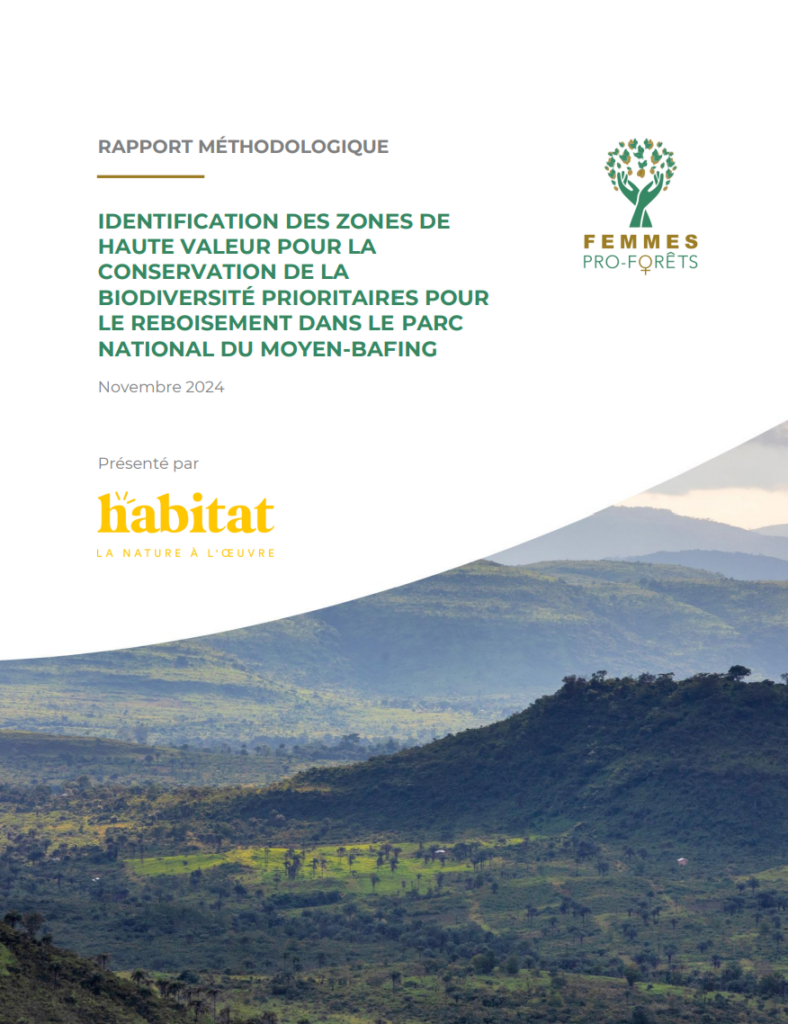Women for Forests by Union des producteurs agricoles – Développement international
Project Information
The initiative aims to enhance climate change adaptation for vulnerable women, girls, and their families within the forest landscapes of Moyen-Bafing National Park (PNMB) in Guinea. It focuses on increasing the adoption of nature-based solutions (NbS) that support forest biodiversity, benefiting these vulnerable groups.
The project seeks to sustainably improve economic opportunities for women, young women, and their families through NbS that bolster forest biodiversity and climate adaptation. Additionally, it promotes inclusive and equitable governance of the park’s forest biodiversity, facilitating better adaptation to climate change for vulnerable women, young women, and their families.Seeking to enhance climate change adaptation for vulnerable women and girls in the Moyen-Bafing National Park, the project looks to promote the adoption of nature-based solutions that support forest biodiversity. It aims to sustainably improve economic opportunities through climate-smart, nature-based agroforestry solutions that respect forest biodiversity. Additionally, the project focuses on advancing women’s and girls’ rights and improving inclusive and equitable governance of forest biodiversity to achieve impactful societal change and support climate adaptation.
This project focuses on capacity building and the development of policies, standards, and regulations to enhance climate change adaptation in the Moyen-Bafing National Park (PNMB). Key outputs include identifying forest Key Biodiversity Areas (KBAs) and assessing ecosystem services for climate change adaptation, particularly benefiting women and young women.
A knowledge transfer program educates stakeholders on forest ecosystems and their climate adaptation benefits, supporting the park’s management plan. Gender-responsive environmental awareness is raised within communities, and inclusive climate adaptation strategies are developed for ecovillages and local development plans.
Support is provided for reforestation and restoration of forest corridors in KBAs, alongside a program promoting low-carbon energy solutions for vulnerable communities. Structuring and strengthening programs assist NTFP Unions/EIGs in disseminating climate-smart agroforestry solutions and post-harvest management practices that meet the needs of women and young women.
Support is given to CSOs/EIGs to overcome barriers related to unpaid care work, and training in green entrepreneurship is provided to support climate adaptation and forest biodiversity. Programs on feminist climate justice and women’s environmental rights are implemented, with networking and advocacy support for women’s CSOs.
A positive masculinities program addresses climate justice and environmental rights, and an inclusive forest governance strategy is developed using a rights-based approach. A gender-responsive Payment for Ecosystem Services (PES) pilot is introduced to benefit communities vulnerable to climate change, especially women and young women.

Project Data
UPA International Development (UPA DI)
CRCEE and CNOP-G.
Implementation Countries
News & Stories
Habitat, 2024
Identification of High-Value Areas for Biodiversity Conservation - Priorities for Reforestation in the Moyen-Bafing National Park (FR)

